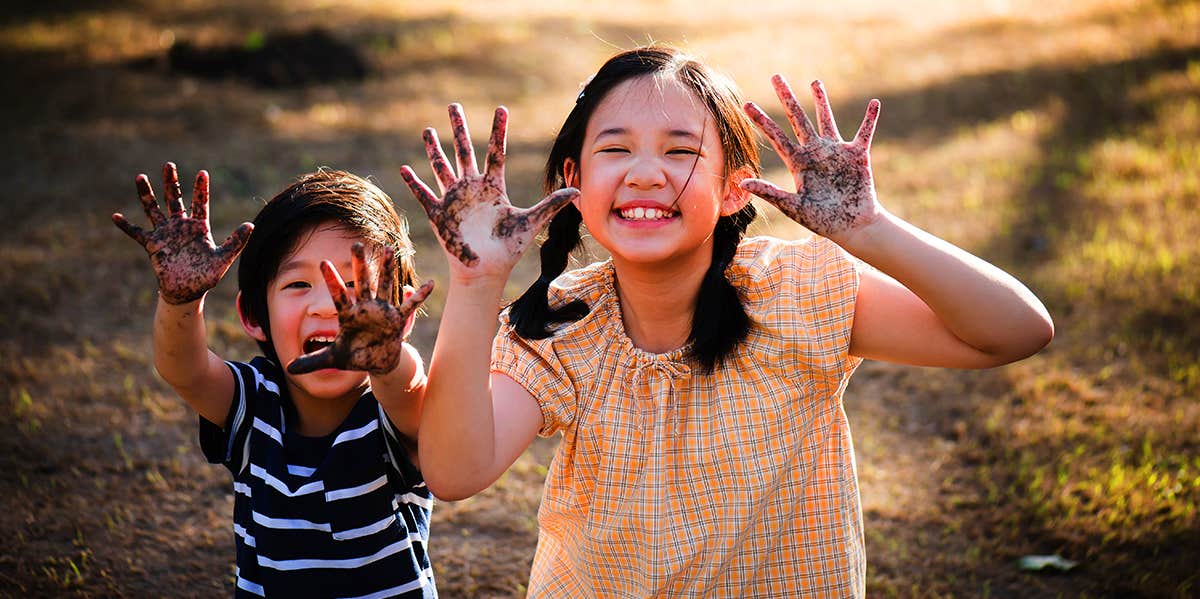5 Ways "Natural Consequences" Makes Parenting Way Easier
Natural consequences are a fancy way to say let life takes its course.
 ANURAK PONGPATIMET / Shutterstock
ANURAK PONGPATIMET / Shutterstock When kids misbehave (read: do stuff you don’t want them to do), many parents say, "Well, they’ll learn through natural consequences."
This means consequences that a parent doesn’t create (e.g., a punishment like grounding), but that just happen naturally due to your child’s behavior or choices.
For example, if your kid doesn’t do his homework then he’ll get a bad grade, which will make him upset, and he’ll (hopefully) do his homework in the future.
Here are five ways natural consequences make parenting way easier:
1. Ends endless validation
When kids are mean or rude to parents in today’s child-centered culture, the parents often try to ignore it and/or validate the child’s underlying feelings.
Example: five-year-old says, "I hate you, you are the worst mommy." You stifle your hurt feelings and respond, "You sound angry. I’m sorry you’re upset."
This does not exactly give your child an understanding of how people in the world tend to naturally react when you are mean to them.
It is okay, and I believe healthier, to respond with, "That hurts my feelings."
After that, you can figure out why they are mad and work with them to resolve the conflict. But endless validation does not help a child turn into an adult that is aware of their capacity to hurt others with their words and actions.
2. Don’t add to your problems
If a child doesn’t make choices that are good for the family, and a bad situation results, natural consequences usually mean that you naturally choose to stop exacerbating the situation.
For instance, a natural consequence of your child having a messy room is that you do not want to buy your child anything else that may clutter up their room. If things cannot be put away, no new things should be coming in. That is a way to save money and also to motivate your child to clean.
3. Limits unconditional approval
There are parents out there who, with the very best of intentions, are conflating unconditional love with unconditional approval. The first is necessary and healthy for a child while the second puts your child at risk of becoming fairly self-obsessed.
If you follow your natural instincts, you will teach your child what you actually approve of and what you don’t, and this can be a helpful guide to understanding the world.
For example, if my child does a terrible half-hearted job of writing out a birthday card for a friend, I am not going to say, "I love it!" This teaches my child nothing about what sort of card would actually look to their friend like they put some effort or thought into it.
If you stop faking approval and start naturally reacting, you are saving yourself the effort, being authentic and teaching your child about the world.
4. Encourages child responsibility
If kids do not help around the house and pull their weight, you will be more stressed and tired.
Many people who grew up as parentified children (meaning, kids who had to act in a parental role toward a depressed, substance-abusing, or otherwise dysfunctional parent) resolve that their kids will never have to feel burdened by housework or other "adult" responsibilities.
They often swing too far to the other direction of the pendulum, and require their children to have zero responsibilities or chores, which means the parent feels as stressed and overwhelmed as they did in their own childhood!
Instead, be open about when you need help and what your children can do to pitch in. The natural consequences of not helping others are that others feel put-upon and resentful; the earlier kids learn this in life, the smoother their later interpersonal relationships will go.
5. Prevents excessive intervention
If your child is going to lose a friend because they aren’t acting nice, you certainly can and should offer advice, but often, the best learning experience for a child is one that occurs in their social milieu.
If your kid has an attitude with others and you’ve tried guiding them to act differently and they don’t listen, step back and allow the chips to fall as they may.
This may sound harsh, but you have limits on what you can control anyway, and viewing a child’s social missteps as learning experiences can help you be less anxious about them. (Obviously, if they are being violent or bullying, stop them ASAP.)
Natural consequences are a fancy way to say let life takes its course.
Don’t try to be the perfect, robotic parent who can shoulder every burden and never gets their feelings hurt; this only sets up your child to be self-absorbed later in life. Treat yourself with the same love and compassion as you treat your child and do not try to save them from the natural consequences of their actions.
Dr. Samantha Rodman Whiten, aka Dr. Psych Mom, is a clinical psychologist in private practice and the founder of DrPsychMom. She works with adults and couples in her group practice Best Life Behavioral Health.

